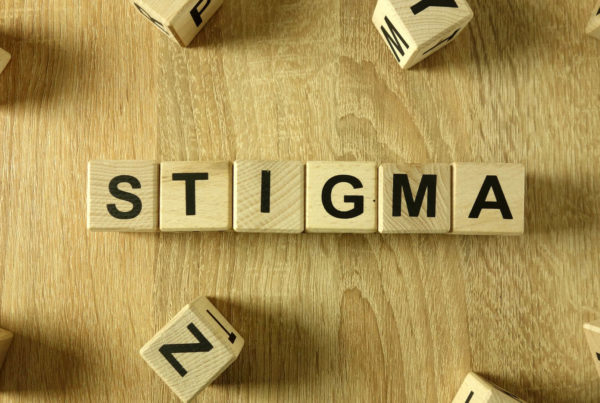In January 2020, when Governor Tom Wolf launched Reach Out PA: Your Mental Health Matters, I was both excited and grateful. I had started just two weeks prior to that in my role as the first Executive Director of Pennsylvania’s new Office of Advocacy and Reform (OAR). OAR was formed to improve the lives of all vulnerable Pennsylvanians through advocating for their needs and driving reform throughout state agencies and beyond. One major part of that work is making Pennsylvania a Trauma-Informed State, which the governor included as part of Reach Out PA.
The Role of Trauma
That in and of itself is a powerful statement by the governor. So often we think of mental health challenges as “illness” or “aberration.” While there are cases where someone may have been born with a physiological condition that affects brain chemistry or mental health, I believe the vast majority of what we call “mental illness” is actually a mislabeling of the way the normal, healthy, human brain reacts to trauma; especially chronic and complex traumas like toxic stress and child abuse. Our brain does everything it can to protect us from threats to our safety, but when those threats are ongoing for a long time, are devastating in their violence, or come from the very people that we look to for our safety, those neurological systems designed to protect us from very real threats can start to interfere with our ability to succeed in other settings like school, relationships, and work; in effect, life.
At a time when we desperately need to be our best at decision making and problem-solving, our neurological systems are shutting off the part of our brain that does that in favor of the part of our brain that is in charge of our fight, flight, or freeze response. When presented with a problem or something frightening while already in this state, we may find ourselves exploding in anger, avoiding the problem, or shutting down with a sense of being overwhelmed. Your child drops a glass while you’re working from home and you find yourself shouting at them in a manner that’s disproportionate to dropping a $1 glass or spilling twenty cents worth of milk. Your response is heightened by the underlying trauma and anxiety you were already feeling, and because it’s been left unaddressed, your child is on the receiving end of a response that has nothing to do with them or a glass of milk.
This is a simple example, but it can play out in a hundred smaller or larger ways when something triggers someone dealing with untreated trauma. In addition to a regrettable exchange with someone you love, it might be anything from poor performance at work, to self-medicating with alcohol or drugs, to finding yourself in a prison cell, or worse. The rational, problem-solving part of your brain isn’t a part of those outcomes.
This situation is exacerbated by the current COVID-19 crisis – as people across the commonwealth and indeed the entire nation, have experienced toxic stress and trauma because of the pandemic. In many ways, it’s the same trauma and sense of powerlessness experienced by those in vulnerable populations, especially those who live in poverty, every day of every year: Am I in danger? Will I die? Will I lose my job? Are my children in danger? Will I be able to get enough to eat? Will we lose our home because of this?
In the past, I’ve been accused of making excuses for people’s bad behavior when I discuss trauma and the brain. With so many Americans experiencing these symptoms at the same time, I’m hoping there’s a window now to have a deeper conversation.
When trauma is left untreated, it can interfere with every aspect of life. I know this on a personal level. On the Kaiser Permanente/Centers for Disease Control Adverse Childhood Experiences (ACEs) survey, I’m an 8 out of 10. That means I’ve experienced 8 out of the 10 adverse childhood experiences that have been linked with a myriad of negative physical health outcomes, including a shorter life expectancy of up to 20 years. Domestic violence especially, which plagued my childhood for a decade, led to me struggling with untreated PTSD for more than 30 years.
That experience is largely why I cheer Governor Wolf’s emphasis on two key elements of Reach Out PA that I see as crucial for healing.
Seeking Help – It’s OK
The first element is addressing the issue of stigma. If much of what we’re seeing as we address mental health is the way the normal human brain responds to danger and tragedy, then we all may need help from time to time to maintain good mental health. When Reach Out PA was launched, the PA Department of Health estimated that 38% of all Pennsylvanians had experienced child abuse, and that’s to say nothing of the other ACEs a household might experience – like domestic violence, substance abuse, an incarcerated parent, sexual abuse, neglect, or divorce. We also have more and more research being done on generational and communal traumas like community violence, racial discrimination, or the inherited, generational trauma for populations like the descendants of slaves, Holocaust survivors, or native tribes. Trauma, whether individual or communal, degrades our mental health and the stigma surrounding mental health prevents too many of those suffering trauma from getting the help they need.
While the COVID-19 pandemic is undoubtedly a tragedy, it is also an unprecedented opportunity for empathy. If we can recognize that this is all of us, that all of our brains work this way, that we all make damaging decisions in the midst of toxic stress and trauma and that we all need help sometime, then together we can work to remove the stigma around seeking that help.
Recognizing that you need help is not a weakness, it’s a strength. I realized this myself when I first reached out to a therapist. I needed to be strong and reach out for help so I could heal, not just for myself, but for my wife, my children, and the people I serve who need me to be healthy and strong to fight the good fights ahead. We will all need help as we open our doors from this crisis, and none of us should be ashamed to ask for it.
Overcoming shame and learning how to heal is a large part of my story, but I’m not alone, and neither is anyone else who is struggling out there, even though it can feel like it sometimes. Sharing our stories will be a large part of the Governor’s upcoming anti-stigma campaign. Our stories connect us, give us strength, and make it clear that there is no reason for shame when so many of us are survivors of trauma. We’re normal, healthy people who were in abnormal and dangerous circumstances. That needs to be met with healing, not judgment.
Getting the Help You Need
That leads me to the second crucial element. If we’re all going to need help to heal and maintain our mental health, then we’re going to need access to that help. Access involves having enough available professionals to help and being able to afford care – and Reach Out PA addresses both those challenges. The governor’s initiative seeks to find ways to bring more professionals into the field and to better address the vicarious trauma they experience when they work to heal others. That includes working to put more counselors in schools across the commonwealth.
When it comes to affordability, insurance coverage can often dictate access to mental health services. Lack of insurance has long left many of our most vulnerable citizens without both physical and mental health services. Even people with health insurance can find themselves without coverage for the therapies they need. That’s why Reach Out PA’s actions include the Insurance Department working to strengthen regulations to make sure all Pennsylvania insurance companies provide affordable access to needed mental health care.
This is urgent, and inextricable from our physical health. The ACEs study showed increased incidences of heart disease, high blood pressure, cancer, stroke, substance abuse, and suicide for people who experienced childhood traumas. If that isn’t enough to convince us of the mind-body connection, we have only to look at the latest study on life expectancy in the United States. The three major factors that have decreased life expectancy here for the second year in a row were suicide, drug overdose, and liver disease. I would be willing to bet if we dug into those instances of people self-medicating or being too overwhelmed to go on, we would find a lot of untreated trauma.
We can do better. That’s what Reach Out PA and the Office of Advocacy and Reform are all about; doing better for our most vulnerable children, brothers, sisters, and neighbors so they can overcome what happened to them even as we work to make sure what happened to them doesn’t happen to anyone else. That all starts with reaching out. As Governor Wolf said, “For those struggling with their mental health, we have one message: your mental health matters and it’s okay to reach out for help.” Now it is incumbent on us to make sure that when someone summons the courage to reach out, there’s always someone there ready to take their hand.
To learn more about Reach Out PA: Your Mental Health Matters, visit www.governor.pa.gov/newsroom/pennsylvania-launches-reach-out-pa-your-mental-health-matters/






